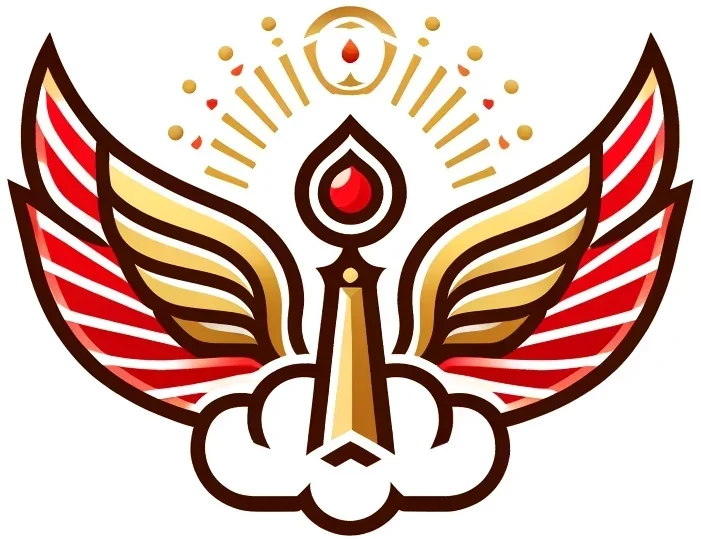
In the land of Cyrus and Zoroaster, where sacred fires once burned to uphold truth (Asha), another fire smolders in silence — the fire of Sufi mysticism, carried through whispered poetry, secret gatherings, and hearts that still remember. And that fire is feared.
The Islamic Republic of Iran, built on the rigid scaffolding of Shiite clerical rule, has always viewed Sufism not merely as heresy — but as a spiritual rebellion. The dervishes do not preach violence, nor seek political power. Their crime is deeper: they offer freedom of the soul in a land that demands control over it.
Mystics Without Borders
Sufis follow the inner path (tariqah), guided by love, remembrance (dhikr), and the ecstatic pursuit of unity with the Divine. Their teachers, called Pirs or Sheikhs, carry spiritual chains back to the Prophet — yet owe no allegiance to the state’s clerical order. They gather not in mosques sanctioned by government, but in khaniqahs, Sufi lodges alive with music, poetry, and prayer.
This alone makes them dangerous to the regime.
In Iran’s official theology of Velayat-e Faqih — the Rule of the Jurist — only the state-approved clergy may interpret religion. Mystical autonomy is an existential threat. The state fears that Sufism’s inward path could awaken an outward resistance, not through protest, but through spiritual disobedience.
A History of Silence and Fire
Sufism in Persia long predates the Islamic Republic — in fact, it predates Shiism itself. In the verses of Rumi, the laments of Attar, the fire-lit visions of Hafez, we hear echoes of a far older spiritual memory — one that resembles Zoroastrian metaphysics more than Ayatollah-led jurisprudence.
- Light and darkness as moral forces,
- Love as the bridge between soul and Source,
- The fire of the heart as a symbol of Divine presence.
These ideas — once native to Iran — now live in exile within its borders.
The Gonabadi Dervishes: A Case in Point
No group has suffered more than the Gonabadi Sufis, Iran’s largest Sufi order. In 2018, violence broke out between dervishes and state forces in Tehran after repeated harassment and arrests. Hundreds were beaten, imprisoned, or tortured. Their spiritual leader, Dr. Noor Ali Tabandeh, was placed under house arrest, where he later died.
Their crime? They refused to bow. Not to the Supreme Leader. Not to dogma. Only to God.
Why the State is Afraid
Iran’s regime is built on control: over thought, over belief, over identity. Sufism undermines all three. It teaches that:
- Truth is found in the heart, not in decrees,
- Spiritual authority is earned, not appointed,
- The soul is free, even if the body is caged.
These are not just mystical ideas — they are revolutionary ones.
Asha Still Burns
In Zoroastrianism, the ancient Persian religion, Asha was the principle of truth, order, and divine harmony — the flame of righteousness against the Lie (Druj). In a way, the Sufis are the modern bearers of Asha, keeping alive a vision of Iran that transcends theocratic repression.
Their poems are prayers. Their silences are sermons. And their fire — though persecuted — still burns.
The Islamic Republic fears the Sufis not because they are political, but because they are eternal.
The Hidden Continuum: From Zoroaster to Rumi
Before Islam, Iran was home to Zoroastrian mystics who spoke of the soul’s journey, the light within, and the war between truth and deception. That didn’t vanish with the Arab conquest — it migrated into Persian Islam. And Sufism became its vessel.
When Rumi says:
“The wound is the place where the Light enters you,”
he echoes the same fire that burned on Zoroastrian altars — Atar, the sacred flame of insight and moral clarity.
This fire didn’t go out — it changed shape, and became poetry, song, and silence.
Why the Regime Must Suppress It
To survive, Iran’s theocracy must:
- Centralize religious power
- Monopolize truth
- Erase alternative spiritual lineages
Sufism threatens all three.
It says:
- You don’t need a state-appointed cleric to reach God.
- You don’t need fear to find righteousness.
- You don’t need slogans to taste eternity.
And worst of all — it reminds Iranians of their deeper identity: one rooted in wisdom, love, and cosmic balance — not repression, martyrdom culture, or political dogma.
That’s why the regime spends more effort silencing poetry than confronting poverty.
The Role of Women and the Marginalized
Sufism is also dangerous because it opens doors the regime keeps shut:
- Women often play vital roles in Sufi orders, as disciples, poets, and even guides.
- Minorities, including Kurds, Baluchis, and ethnic Persians with Zoroastrian heritage, find spiritual dignity within Sufi gatherings.
In Sufism, your rank is by love, not lineage. That undermines a regime that runs on hierarchy, fear, and bloodline legitimacy.
Sufism as Resistance — Without Politics
The power of Sufism lies in its apolitical resistance. It doesn’t seek to conquer — it seeks to awaken.
Every poem of Rumi read in secret, Every gathering in a hidden khaniqah, Every whispered name of God in the night
—is a declaration of spiritual sovereignty.
And make no mistake: the regime knows it.
Toward a Rebirth: The Sufi Path and Iran’s Future
One day, when the black flags fall and the prisons open, Iran will need a soul again — not just a government.
It won’t be found in Western materialism or in shallow reform. It will be found in a return to the eternal — the path of truth, of flame, of inner liberation.
And the Sufis — long persecuted, long patient — will be there.
Not to rule. Not to punish.
But to remind Iran of what it once was… and could be again.
